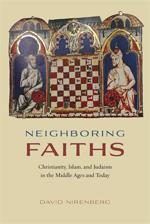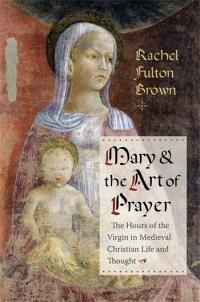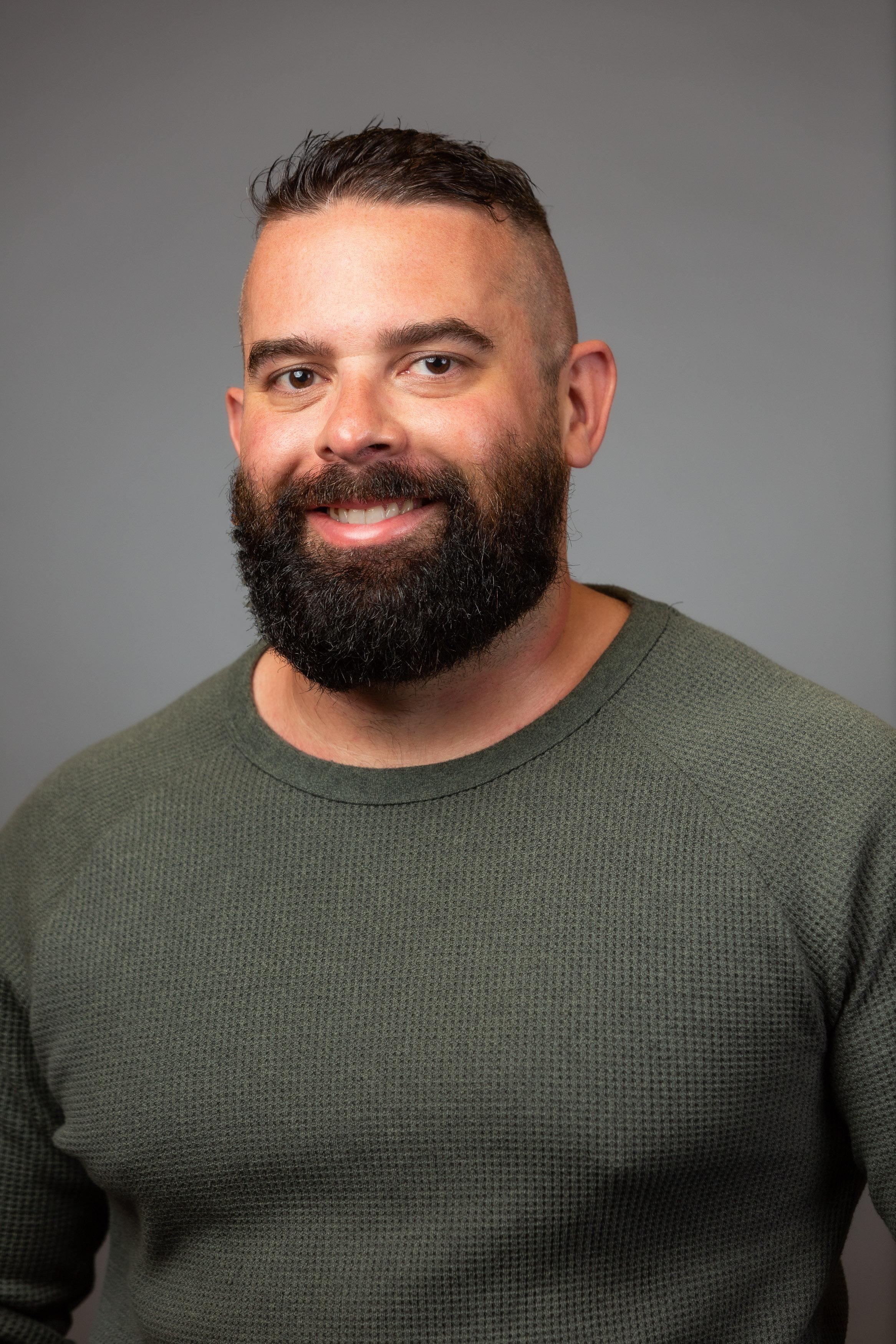
RESEARCH INTERESTS
Independent Africa; law; military history; crime
BIOGRAPHY
Samuel Fury Childs Daly writes about law, warfare, and the politics of military regimes. Most of his work describes the history of Africa since independence. He asks how soldiers and judges think: how do military dictatorships use law, and how do judiciaries check their powers – or enable them? He also studies what warfare does to legal systems. Armed conflict degrades normative orders, and sometimes it creates new ones. How do people make order and resolve disputes in wartime? His first book, A History of the Republic of Biafra: Law, Crime, and the Nigerian Civil War (Cambridge University Press, 2020), connects the Nigerian Civil War to the fraud and violent crime that wracked Nigeria in its wake. Using an original body of legal records from the secessionist Republic of Biafra, it traces how technologies, survival practices, and moral codes that emerged during the fighting lasted long after the war was over. The line between martial violence and violent crime can blur on the battlefield, and once that line is gone it is hard to redraw it.
His forthcoming book, Soldier’s Paradise: Militarism in Africa After Empire, describes one of the twentieth century’s most widespread ideologies – militarism. Across Africa, the late twentieth century was a time of military coups and martial “revolutions.” The men who staged them had utopian visions. In Nigeria and other former British colonies, army officers remade their countries along martial lines. Some soldiers tried to drum colonialism’s bad habits out of people through military-style discipline, or condition civilians to think more like they did. Others believed that making their countries into vast open-air barracks was what would make them truly “free.” They saw judges and lawyers as allies in that mission, but law wasn’t the disciplinary tool they thought it was. Military regimes found that people could turn law back against them, and only some judges shared their world-making aspirations. Soldier’s Paradise shows how law facilitated militarism, and, at times, worked against it. Long submerged by more hopeful ideological currents, militarism is resurfacing in African politics. Soldier’s Paradise describes where it came from.
He is currently conducting research for two projects – a global history of military desertion, and a book about military imposters and role-players. His work has been published in venues including Past & Present, Comparative Studies in Society and History, and the Los Angeles Review of Books. He holds a PhD in History from Columbia University, an MPhil from the University of Cambridge, and an MA from the School of Oriental and African Studies, University of London. He previously taught at Duke University.
Recent Research / Recent Publications
-
Winner of the Law and Society Association J. Willard Hurst Book Prize for the best book in legal history in any region or time period published in 2020
-
Winner of the African Studies Association of the United Kingdom Fage & Oliver Prize for the best book on Africa published in 2020 or 2021
-
Honorable Mention for the American Society for Legal History Peter Gonville Stein Book Award for the best book in non-US legal history published in 2020
-
Reviewed in: Times Literary Supplement, American Historical Review, Journal of Social History, Journal of Interdisciplinary History, Journal of Contemporary History, HNet Africa, International Journal of African Historical Studies, The Historian, Canadian Journal of African Studies / Revue canadienne des études africaines, Journal of African Military History, Choice, Business Day [Lagos], Law & Social Inquiry (long-form review); book forum in Cultural Dynamics.
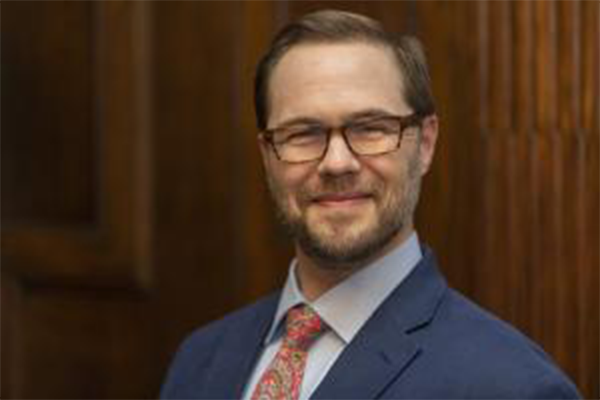
University of Pennsylvania, PhD '15
BIOGRAPHY
Matthew Kruer is a scholar of early modern North America exploring the relationship between Indigenous power and the development of the British empire. He holds a master’s degree in history from the University of Oregon and a doctorate from the University of Pennsylvania.
Kruer’s first book, Time of Anarchy: Indigenous Power and the Crisis of Colonialism in Early America, examines the tumultuous decade between 1675 and 1685, during which ethnic riots and separatist movements swept through New York, Maryland colonists launched two uprisings, Virginia colonists rebelled against their government, and North Carolina colonists engaged in full-blown revolution. These colonial insurrections were closely connected with a spasm of wars among Indigenous nations ranging from the Great Lakes and the Deep South. Framing this chaotic violence as a single event, which he calls the Time of Anarchy, he shows that these seemingly distinct conflicts were connected by the Susquehannocks, a once-powerful Indigenous nation in what is currently Pennsylvania. Expelled from their homes by colonial militia and scattered across eastern North America, Susquehannocks exerted a political influence wildly disproportionate to their numbers, in the process reshaping both Native nations and English colonies. This book explores the forms of power exercised by seemingly weak and vulnerable Indigenous migrants, who in their struggles for survival and resurgence drove political struggle and social change in early America.
His next project explores discourses of sovereignty among Indigenous nations within the early modern British empire and the evolution of British settler colonialism in North America and the Caribbean.
Kruer serves as the University of Chicago’s liaison to the Newberry Consortium in American Indian and Indigenous Studies (NCAIS), which links universities across the United States and Canada engaged in Indigenous Studies. Each year NCAIS holds a Graduate Student Conference, runs a 3-day Spring Workshop and 4-week Summer Institute in research methods, and offers fellowships for faculty and graduate students. Please contact Prof. Kruer for additional information about these opportunities and about Indigenous Studies at the University of Chicago.
Recent Research / Recent Publications
-
Time of Anarchy: Indigenous Power and the Crisis of Colonialism in Early America (Cambridge, Mass.: Harvard University Press, 2021).
-
“Bloody Minds and Peoples Undone: Emotion, Family, and Political Order in the Susquehannock-Virginia War,” William and Mary Quarterly 74, no. 3 (2017): 401-436.
-
“Indian Subjecthood and White Populism in British America,” in Ideology and U.S. Foreign Relations: New Histories, ed. David Milne and Christopher McKnight Nichols (New York: Columbia University Press, 2022)
-
Awarded Allan Nevins Prize, Society of American Historians
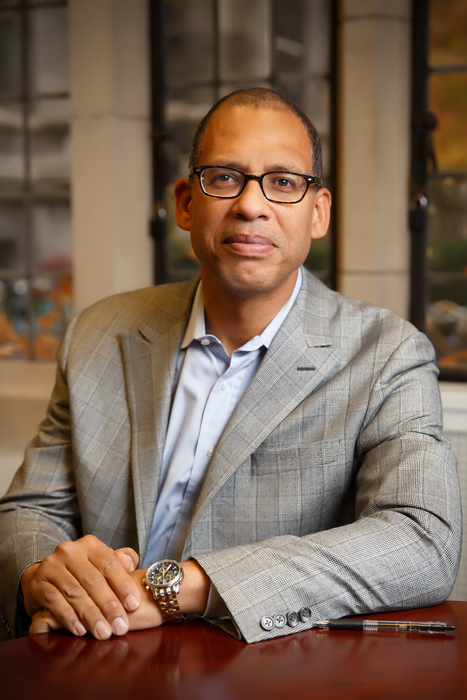
Yale University, PhD '98
Recent Research / Recent Publications
Selling the Race: Culture and Community in Black Chicago, 1940–1955. Chicago: University of Chicago Press, 2007.
-
C-Span2 BookTV Discussion [video, 22 minutes]
Coeditor Charles Payne. Time Longer than Rope: Studies in African American Activism, 1850–1950. New York: New York University Press, 2003.
-
Begins research for the Official Oral History of the Obamas
-
Writes op-ed on the 1919 Chicago race riots for The New York Times
-
Quoted in Hyde Park Herald article on the shooting of Tamir Rice
-
Quoted in The Chicago Tribune article on 1919 Chicago race riots
-
Participates in Q&A with the University of Chicago Magazine
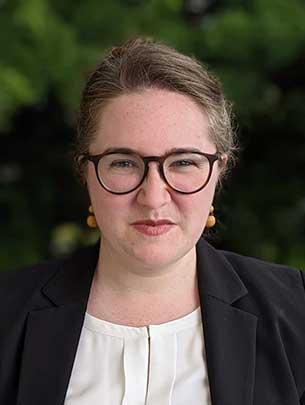
Princeton University, PhD '18
BIOGRAPHY
Emily Kern is a historian of science, with a specialty in the intellectual and cultural history of anthropology, evolution, and the life sciences. Her research and teaching focus on the relationship between the production of scientific knowledge and the production of global political power in the nineteenth and twentieth centuries.
Her current book project, The Cradle of Humanity: Science and the Making of African Origins, explores how the African continent became the “cradle of humankind” and the pre-eminent site for human evolutionary research that it is today. Until the 1950s, it was generally believed that the human species first evolved in Asia, not Africa—an idea that was deeply rooted in European intellectual traditions and continued to draw historians and scientists to the archive, the laboratory, and the Asian field well into the twentieth century. The Cradle of Humanity argues that the story of humanity’s African origin is linked necessarily with the transformation of Africa itself as an object of historical and scientific inquiry. Foregrounding the changing geography of human origins in this history also makes clear that ideas about where humankind emerged often came before explanations for how evolution functioned, and that ideas about place, race, and world history shaped how scientists thought about biological mechanisms and the human species.
Kern is also co-editing the forthcoming volume New Earth Histories with Alison Bashford (UNSW) and Adam Bobbette (Glasgow). Situated at the intersection of the history of the earth
and environmental sciences, New Earth Histories explores the significance of multiple ideas of geological time and cosmological systems for the production of global modernity. She is also beginning work on a second project exploring the contemporary construction of the racial identity of Neanderthals against the long history of the disputed place of Neanderthals in the human evolutionary lineage since the discovery of the first Neanderthal remains in 1856 and the first complete skeletal analysis in 1908.
Kern earned her BA at the University of Pennsylvania and her PhD at Princeton University in 2018. Her dissertation won the 2019 DHST dissertation prize from the International Union of History and Philosophy of Science and Technology. Before coming to Chicago, she was a postdoctoral research fellow in the New Earth Histories Research Program at the University of New South Wales in Sydney, Australia.
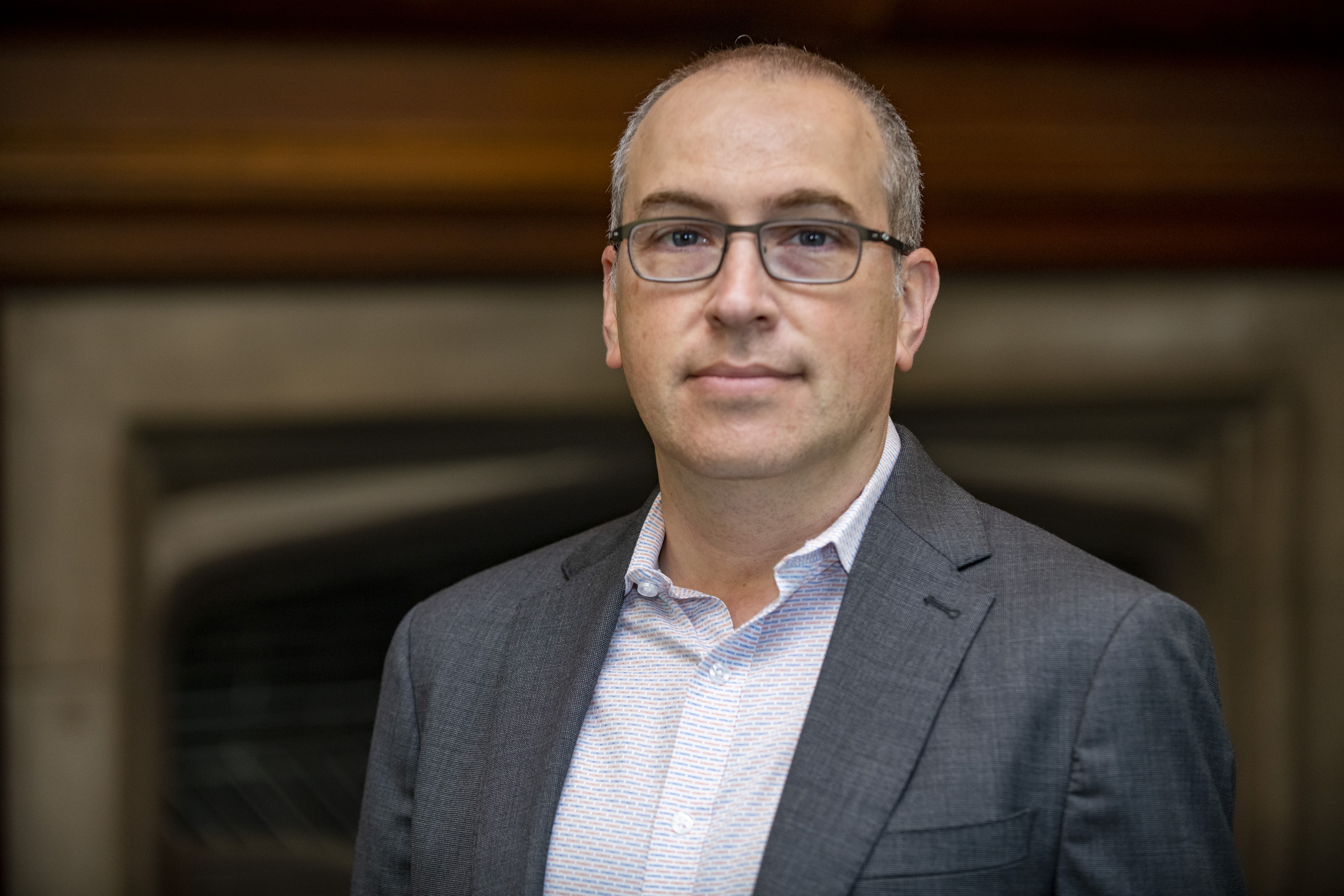
Stanford University, PhD '05
BIOGRAPHY
I am a historian of Jewish politics, culture, literature and thought in the modern era and in our own day. Trained in global Jewish history since the 18th century, I teach and lecture on many aspects of the modern Jewish experience, but my scholarship focuses particularly on Jewish political thought and struggle in Eastern Europe in the era of nationalism, on the unfinished history of secular Yiddish and Hebrew literary and cultural creativity, and – currently – on the forces that have shaped the deep conflicts that wrack Jewish life today in Israel and the United States.
Much of my work to date has asked how Jewish visions of cultural and political self-determination were realized, frustrated, unmade, or recast across the 20th century from Russia, Ukraine, and Poland to Palestine and Israel and what happened to Jews in the process.
In 2023, Yale University Press published a volume I co-edited with Israel Bartal, Professor Emeritus at the Hebrew University of Jerusalem. Volume 7 of the Posen Library of Jewish Culture and Civilization, National Renaissance and International Horizons, 1880–1918, offers an annotated collection of over 900 primary sources selected to try to encompass every major trend and genre in Jewish cultural production around the globe during the 1880-1918 period. These sources, drawn from nearly twenty languages, are to accompanied by a substantial scholarly apparatus: biographies and bibliographies of each of the authors/artists and a monograph-length introduction which comprises the first attempt I know of to offer a full synthetic account of the global and regional forces, ideological, philosophical, and aesthetic commitments, and political, economic, and cultural conditions that shaped Jewish creative life in this stormy era.
My 2021 book, An Unchosen People: Jewish Political Reckoning in Interwar Poland (Harvard University Press), traces how pre-Holocaust Europe’s largest Jewish community reckoned with nationalism’s pathologies, diaspora’s fragility, Zionism’s promises, and the problem of choice under conditions of powerlessness and danger. An Unchosen People combines intellectual and social history, examining the works of Polish Jewry’s most searching Zionist and Diasporist thinkers as they confronted political irrationality, state crisis, the crisis of culture, and the limits of resistance while also recovering a lost grassroots history of critical thought and political searching among ordinary Jews as they struggled to find a viable future for themselves—in Palestine if not in Poland, individually if not communally. Supported by a Ryskamp Fellowship from the American Council of Learned Societies, An Unchosen People has received the 2022 National Jewish Book Award for History from the Jewish Book Council, the 2022 Oskar Halecki Award for Polish and East Central European History from the Polish Institute for Arts and Sciences in America (PIASA), and honorable mention for the 2022 Kulczycki Book Prize in Polish Studies from the Association for Slavic, East European, and Eurasian Studies (ASEEES).
My 2009 Jewish Renaissance in the Russian Revolution (Harvard University Press) examines the triumph and tragedy of bids for Yiddish and Hebrew cultural renaissance amidst total war and revolution. Recovering bold artistic creativity and nation-building undone by violence and repression, Jewish Renaissance demonstrates the intensity of Jewish engagement with the liberal ethos of culture and art as vehicles of freedom, and the surprisingly deep impact of that ethos on Jewish nationalism. Jewish Renaissance received the 2010 Sami Rohr Prize for Jewish Literature and has now appeared in revised Hebrew translation as Yemei ha-ma’asim: tehiyat ha-tarbut ha-yehudit be-tkufat ha-mahpekhah ha-rusit (Jerusalem: Merkaz Zalman Shazar, 2023).
Thus, where the first arc of my research asks how Jews participated in a modern dream of freedom and self-determination through art, this second arc investigates how the East European Jewish experience speaks to two other, grimmer global histories: the history of progressive social thought’s ongoing struggle to make sense of the unexpected powers of the politics of hate and fear, and the history of minority confrontations with majority pathologies they cannot change and with the imperatives of communal triage under conditions of powerlessness and danger.
Looking ahead, I am now turning my attention to the post-Holocaust and postwar Jewish world and to the conflicted Jewish life of our own time, with equal interest in the US, Israel and Palestine, and global Jewish itineraries. I am embarked on a study of the American Yiddish poet Arn Glanz-Leyeles, Jewish Americanism, and the fate of Jewish humanism after the Holocaust. I am pursuing research on East European Jewish refugee thought about fascism, religion, and reactionary politics, starting with the writings of Jewish refugees given shelter in wartime Japan. A project provisionally entitled Israel’s Future: A History will investigate how state and military planners, intellectuals both establishment and anti-establishment, business circles, and now-dominant illiberal nationalist and ethnoreligious parties and thinktanks have approached Israel’s future (as well as the future of the occupied territories and the future – or interminable present – of the Palestinians under occupation) as an object of planning, debate, intervention, power, and critique in ethnopolitical, economic, security, political-theological, environmental, and global-catastrophic idioms.
Finally, I am embarking on a history of the Jewish present – a Jewish history for the 21st century organized not by the horizons and hopes of the 18th and 19th century (above all Enlightenment and Emancipation) but as an effort to better understand the phenomena that are recasting Jewish life today, many of them unexpectedly and in unanticipated ways. These include illiberal ethnonationalist political projects in Israel which are transforming that polity even as we speak; intense forms of religiosity that are not only centered in Israel but also now have a global reach; a multi-faceted gender revolution that now finds women at the center of organized Judaism and the question of gender equality at the heart of some of its fiercest debates; unprecedented forms of ‘post-Jewish’ hybridity in the US and Europe which suggest that much of what Jewish creativity will be and mean in coming decades will fall in an ever-widening space between complete disappearance on the one hand and all forms of organized and committed Judaism on the other; and Jewish participation in – and also new and disturbing roles and representations in – debates about global precarity, inequality, and disaster. An essay on the relations between religion and nationalism both in Judaism and in a comparative vein, written with Roger Friedland, captures some of my lines of thought about the first and second of these dimensions, as does an expanded version of the conclusion to my first book Jewish Renaissance in the Russian Revolution, written in 2022 for the Hebrew translation thereof.
From 2014 to 2020, I coedited the journal Jewish Social Studies with Tony Michels and Sarah Stein.
In 2021, I co-edited with Benjamin Nathans and Taro Tsurumi From Europe’s East to the Middle East: Israel’s Russian and Polish Lineages (University of Pennsylvania).
I have also written comprehensive encyclopedia articles on the biography of Y. L. Peretz and the history of Jewish printing and publishing
And, of course, I’ve written on St. Patrick’s Day celebrations and the construction of Irish American identity.
My work has appeared in Hebrew, Yiddish, Polish, Russian, German, and Portuguese. Between 2003 and 2021, I taught Jewish history in the city where Shaul Tshernikhovski's poetry first appeared in print.
Teaching Interests
In addition to introductory courses on modern Jewish history from the 18th century to the present, I have taught specialized seminars on East European Jewry, the history of Palestine and Israel from the Mandate period to the present, Jewish religion and secularity in Eastern Europe and Israel, 20th century Jewish politics and political thought, the history of the Holocaust, Jews and the city, and the history of the idea of Jewish culture. I teach in the Jewish Civ track at the University of Chicago. I have also taught undergraduate courses on 20th century social theory; the history and sociology of nationalism; and the transatlantic history of racial and national minorityhood 1880-1939 (with Michael Hanchard). At the graduate level, I teach modern Jewish historiography and have taught specialized seminars on modern Jewish politics; Mandate Palestine; histories of nationalism; the institution of culture; and theories and histories of secularism and religion in modernity and the present.
Recent Research / Recent Publications
-
Yemei ha-ma’asim: tehiyat ha-tarbut ha-yehudit be-tkufat ha-mahpekhah ha-rusit (Jerusalem: Merkaz Zalman Shazar, 2023) (= revised and expanded Hebrew version of Jewish Renaissance in the Russian Revolution, trans. Michal Perez).
-
An Unchosen People: Jewish Political Reckoning in Interwar Poland (Cambridge, MA: Harvard University Press, 2021); winner 2022 National Jewish Book Award for History from the Jewish Book Council; 2022 Oskar Halecki Award for Polish and East Central European History from the Polish Institute for Arts and Sciences in America (PIASA); honorable mention, 2022 Kulczycki Book Prize in Polish Studies of the Association for Slavic, East European, and Eurasian Studies (ASEEES).
-
Jewish Renaissance in the Russian Revolution (Cambridge, MA: Harvard University Press, 2009; winner, 2010 Sami Rohr Prize for Jewish Literature, National Jewish Book Council).
-
Co-edited with Israel Bartal, Posen Library of Jewish Culture and Civilization, v. 7: National Renaissance and International Horizons, 1880–1918; editor in chief Deborah Dash Moore (Yale University Press, 2023).
-
Co-edited with Benjamin Nathans and Taro Tsurumi, From Europe’s East to the Middle East: Israel’s Russian and Polish Lineages (Philadelphia: University of Pennsylvania Press, 2021).
-
Guest editor, The Journal of Israeli History, v. 27, 2 (September 2008), special section on “East European Jewry, Nationalism and the Zionist Project.”
-
“‘Du vest mayn libshaft nisht mevayesh zayn, Amerike!’”: Glants-Leyeles, der problem fun dem yidishn humanizm nokhn khurbn, un di frage fun Amerikes andershkayt [“You will not put my love to shame, America!”: Glants-Leyeles, the problem of post-Holocaust Yiddish humanism, and the question of American exceptionalism], trans. Zackary Sholem Berger with author, Afn Shvel: gezelshaftlekh-literarisher zhurnal, forthcoming.
-
[Co-authored with Israel Bartal], “National Renaissance and International Horizons, 1880-1918: Introduction” Posen Library of Jewish Culture and Civilization: Anthology of Primary Sources, Documents, Texts, and Artifacts in 10 Volumes, v. 7: National Renaissance and International Horizons, 1880–1918 (Yale University Press, 2023), xlvii-cxxxi.
-
“Sikum,” Yemei ha-ma’asim: tehiyat ha-tarbut ha-yehudit be-tkufat ha-mahpekhah ha-rusit (Jerusalem: Merkaz Zalman Shazar, 2023) (= new conclusion for Hebrew version of Jewish Renaissance in the Russian Revolution), 367-396.
-
“From Zionism as Ideology to the Yishuv as Fact: Polish Jewish Relations to Palestine on the Cusp of the 1930s,” in From Europe’s East to the Middle East: Israel’s Russian and Polish Lineages, ed. Moss, Benjamin Nathans, and Taro Tsurumi (University of Pennsylvania Press, 2021), 271-304.
-
[Co-authored with Benjamin Nathans and Taro Tsurumi], “Mediating Zionist History and East European History,” in From Europe’s East to the Middle East: Israel’s Russian and Polish Lineages, ed. Moss, Nathans, and Tsurumi (University of Pennsylvania Press, 2021), 1-15.
-
[Co-authored with Roger Friedland], “Thinking through Religious Nationalism,” in Words: Religious Language Matters, eds. Asja Szafraniec and Ernst van den Hemel (Fordham University Press, 2016), 419-462.
-
“Negotiating Jewish Nationalism in Interwar Warsaw,” in Warsaw. The Jewish Metropolis, ed. Glenn Dynner and Francois Guesnet (Brill 2015), 390-434.
-
“Thinking with Restriction: Immigration Restriction and Polish Jewish Accounts of the Post-Liberal State, Empire, Race, and Political Reason 1926-1939,” East European Jewish Affairs 44:2-3 (December 2014): 205-224.
-
“At Home in Late Imperial Russian Modernity – Except When They Weren’t: New Histories of Russian and East European Jews, 1881-1914,” in Journal of Modern History, v. 84, 2 (June 2012): 401-452.
-
"Tsienizm in dem goles-natsyonalistishn gedank: Maks Vaynraykh in Palestine," in Afn shvel: gezelshaftlekh-literarisher zhurnal, n. 356-357 (Zumer-harbst 2012): 21-27.
-
“Arnold in Eishyshok, Schiller in Shnipishok: Imperatives of ‘Culture’ in East European Jewish Nationalism and Socialism” in Journal of Modern History, v. 81, 3 (September 2009): 537-578.
-
“Bringing Culture to the Nation: Hebraism, Yiddishism, and the Dilemmas of Jewish Cultural Formation in Russia and Ukraine, 1917-1919” in Jewish History 22 (2008): 263-294.
-
“1905 as a Jewish cultural revolution? Revolutionary and evolutionary dynamics in the East European Jewish cultural sphere, 1900-1914” in The Revolution of 1905 and Russia’s Jews: a Turning Point?, eds. Stefani Hoffman and Ezra Mendelsohn (Philadelphia: University of Pennsylvania Press, 2008), 186-198.
-
"Not The Dybbuk but Don Quixote: Translation, Deparochialization, and Nationalism in Jewish Culture” in Culture Front: Representing Jews in Eastern Europe, ed. Benjamin Nathans and Gabriella Safran (Philadelphia: University of Pennsylvania Press, 2008), 196-240.
-
“Printing and Publishing: Printing and Publishing after 1800” in The YIVO Encyclopedia of Jews in Eastern Europe, ed. Gershon Hundert (New Haven: Yale University Press, 2008).
-
“Yitshok Leybush Peretz,” in Dictionary of Yiddish Writers, ed. Joseph Sherman (Columbia, SC: Bruccoli, Clark, Layman, 2007).
-
Between Renaissance and Decadence: Literarishe Monatsshriften and its Critical Reception” in Jewish Social Studies, v. 8, 1 (Fall 2001): 153-198.
-
“St. Patrick's Day Celebrations and the Formation of Irish-American Identity, 1845-1875” in Journal of Social History, v. 29, 1 (Fall 1995): 125-148.
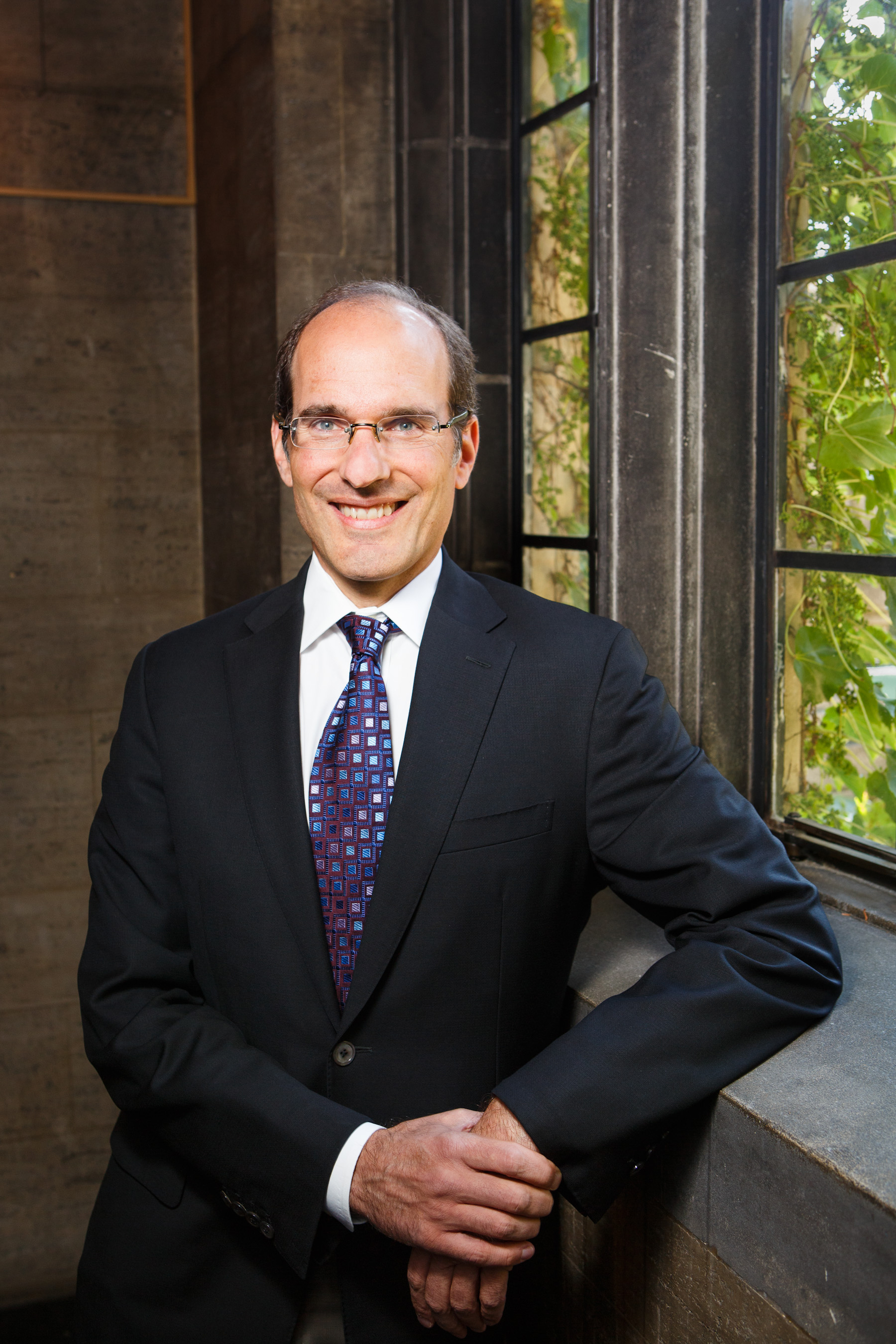
Princeton University, PhD '92
BIOGRAPHY
I have spent most of my intellectual life shuttling between the micro and the macro, trying to understand how life and ideas shape and are shaped by each other. One stream of my work has approached these questions through religion, focusing on the ways in which Jewish, Christian, and Islamic cultures constitute themselves by interrelating with or thinking about each other. My first book, Communities of Violence: Persecution of Minorities in the Middle Ages, studied social interaction between the three groups within the context of Spain and France in order to understand the role of violence in shaping the possibilities for coexistence. In later projects I explored the work that “Judaism,” “Christianity,” and “Islam” do as figures in each other’s thought. One product of that approach, focused on art history, was (jointly with Herb Kessler) Judaism and Christian Art: Aesthetic Anxieties from the Catacombs to Colonialism (2011). In Anti-Judaism: The Western Tradition (2013), I attempted to apply the methodology to a very longue durée, studying the work done by pagan, Christian, Muslim, and secular thinking about Jews and Judaism in the history of ideas. More or less simultaneously in Neighboring Faiths: Christianity, Islam, and Judaism Medieval and Modern (2014), I tried to bring the social into conversation with the hermeneutic, in order to show how, in multireligious societies, interactions between lived experiences and conceptual categories shape how adherents of all three religions perceive themselves and each other. Then in Aesthetic Theology and Its Enemies: Judaism in Christian Painting, Poetry, and Politics (2015), I focused on how thinking about Judaism shaped the ways in which Christian cultures could imagine the possibilities and limits of community and communication.
Beginning with my book Anti-Judaism, which stretched from ancient Egypt to the twentieth century in order to try to understand the work done by a family of concepts across history, I have tried to cultivate a new approach to the “long history” of ideas. My most recent book, Uncountable: A Philosophical History of Number and Humanity from Antiquity to the Present, written in collaboration with Ricardo Nirenberg (a mathematician who happens also to be my father), follows this path as well. It explores the long history of the various types of sameness that underpin the claims of different forms of knowledge (from poetry and dreams, to monotheism, math, and physics), using these to think critically about the powers and the limits of the sciences and the humanities. I am now at work on the long history of yet another family of concepts, namely the inter-connected history of race and religion from the Neolithic to the present.
Recent Research / Recent Publications
Coauthored with Ricardo Nirenberg. Uncountable: A Philosophical History of Number and Humanity from Antiquity to the Present. Chicago, IL: University of Chicago Press, 2021.
Communities of Violence: Persecution of Minorities in the Middle Ages. Princeton, NJ: Princeton University Press, twentieth-anniversary edition with new preface, 2016.
Aesthetic Theology and Its Enemies: Judaism in Christian Painting, Poetry, and Politics. Lebanon, NH: University Press of New England, 2015.
Neighboring Faiths: Christianity, Islam, and Judaism in the Middle Ages and Today. Chicago, IL: University of Chicago Press, 2014.
-
Review of Neighboring Faiths and Anti-Judaism by Carlos Fraenkel, "We Hear and We Disobey," London Review of Books (May 21, 2015): 31–34.
Anti-Judaism: The Western Tradition. New York: W.W. Norton, 2013.
-
Review by Michael Walzer, "Imaginary Jews," New York Review of Books (Mar. 20, 2014)
-
Review by Anthony Grafton, "The Strange History of Antisemitism in Western Culture," New Republic (Oct. 11, 2013)
Discusses book on US Holocaust Memorial Museum podcast
Awarded Ralph Waldo Emerson Award
Communities of Violence: Persecution of Minorities in the Middle Ages. Princeton, NJ: Princeton University Press, 1996; paperback edition, 1998. Spanish translation: Comunidades de Violencia: Persecución de minorías en la edad media. Peninsula Editorial, 2001; French translation: Violence et minorités au Moyen Age. Paris: Presses Universitaires de France, 2001.
-
2000 John Nicholas Brown Prize, Medieval Academy of America
-
1998 Herbert Baxter Adams Prize, American Historical Association
-
1998 Best First Book in Iberian History, Society for Spanish and Portuguese Historical Studies
-
1996 Premio del Rey Prize, American Historical Association
-
Coedited with María Elena Martínez and Max Hering Torres. Race and Blood in Spain and Colonial Latin America. LIT-Verlag, 2012.
-
Coedited with Herbert Kessler. Judaism and Christian Art: Aesthetic Anxieties from the Catacombs to Colonialism. Philadelphia: University of Pennsylvania Press, 2011.
-
"The Impresarios of Trent: The Long and Frightening History of the Blood Libel." Nation (November 16, 2020).
-
"What Is Islam? (What Is Christianity? What Is Judaism?)." Raritan 35 (Fall 2016): 1–14.
-
"Love." In What Reason Promises: Essays on Reason, Nature, and History, edited by Wendy Doniger, Peter Galison, and Susan Neiman, 46–54. Berlin: De Gruyter, 2016.
-
With Leonardo Capezzone. "Religions of Love: Judaism, Christianity, Islam." In The Oxford Handbook of the Abrahamic Religions, edited by Adam Silverstein and Guy G. Stroumsa, 518–535. Oxford: Oxford University Press, 2015.
-
"Power and Piety: Is the Promotion of Violence Inherent to Any Religion?" Nation (Apr. 29, 2015).
-
"Posthumous Love in Judaism." In Love After Death: Concepts of Posthumous Love in Medieval and Early Modern Europe, edited by Bernhard Jussen and Ramie Targoff, 55–70. Berlin: De Gruyter, 2015.
-
"'Judaism' as Political Concept: Toward a Critique of Political Theology." Representations 128 (Fall 2014): 1–29.
-
"'Judaism,' 'Islam,' and the Dangers of Knowledge in Christian Culture, with Special Attention to the Case of King Alfonso X, 'the Wise,' of Castile." In Mapping Knowledge: Cross-Pollination in Late Antiquity and the Middle Ages. Arabica Veritas, vol. I, edited by C. Burnett and P. Mantas-España, 253–76. Cordoba: Oriens Academica, 2014.
-
"Sibling Rivalries, Scriptural Communities: What Medieval History Can and Cannot Teach Us about Relations between Judaism, Christianity, and Islam." In Faithful Narratives, edited by Andrea Sterk and Nina Caputo, 63–82. Ithaca, NY: Cornell University Press, 2014.
-
"Christian Love, Jewish 'Privacy,' and Medieval Kingship." In Center and Periphery: Studies on Power in the Medieval World, edited by Katherine L. Jansen, G. Geltner, and Anne E. Lester, 25–37. Leiden: Brill, 2013.
-
Coauthored with Ricardo Nirenberg. "Badiou's Number: A Critique of Mathematical Ontology." Critical Inquiry 37, no. 4 (2011): 583–614. Response by Alain Badiou and a reply by us, "Critical Response." Critical Inquiry 38 (2012): 362–87.
-
"From Cairo to Cordoba." Nation (June 1, 2011).
-
"When Philosophy Mattered." New Republic (Feb. 3, 2011): 39–43.
-
"Shakespeare's Jewish Questions." Renaissance Drama (2010): 77–113.
-
"Double Game: Maimonides in his World." London Review of Books (Sept. 23, 2010): 31–32.
-
"Anti-Zionist Demography." Dissent (Spr. 2010): 103–9.
-
Interviewed on anti-Semitism for The New Yorker, 2020
-
Writes op-ed on Facebook's hate speech policy, Tablet Magazine, 2019
-
Appointed interim dean of the Divinity School, 2018
-
Appointed executive vice provost
-
Quoted in an Atlantic article on Charlottesville and anti-Semitism
-
Awarded 2017 Historikerpreis der Stadt Münsters for his body of work
-
Delivers the University of Chicago 527th Convocation Address [video, 12 minutes]
-
Awarded Doctor of Philosophy, Honoris Causa, University of Haifa, 2016
-
Elected to the American Academy of Arts and Sciences
-
Publishes Aesthetic Theology and Its Enemies: Judaism in Christian Painting, Poetry, and Politics (Brandeis, 2015)
-
Delivers 2015 Harper Lecture on Religion and Violence [video, 79 minutes]
-
Publishes Neighboring Faiths: Christianity, Islam, and Judaism in the Middle Ages and Today (Chicago, 2014).
-
Appointed a Fellow of the Medieval Academy of America
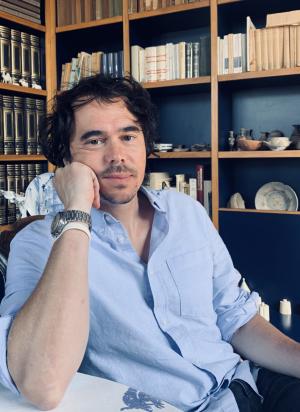
University of Chicago, PhD '08
BIOGRAPHY
I am a historian of the economy and of the United States. In addition to being a member of the Department of History and the John U. Nef Committee on Social Thought I am the current Faculty Director of the Law, Letters, and Society program.
My most recently completed book is Ages of American Capitalism: A History of the United States (Random House, 2021), which is a history of American economic life from British colonial settlement through the Great Recession. The book is also a single-volume history of the United States.
My next book, The Real Economy (forthcoming Princeton University Press), collects published and unpublished essays on economic theory and history. The topic that is the current focus of my teaching and research is the role of money in the emergence of global capitalism in the early modern period. I am also interested in writing about the history of the United States in the late twentieth and early twenty-first centuries. Related to that, a final project is a planetary history of the city of Houston. I wrote a series of essays on this topic in 2019 for the Visualizing Climate and Loss Project at Harvard’s Center for History and Economics.
My first book, Freaks of Fortune: The Emerging World of Capitalism and Risk in America (Harvard, 2012), won the Organization of American Historians' Frederick Jackson Turner Award, Ellis W. Hawley Prize, and Avery O. Craven Award and the American Society for Legal History's William Nelson Cromwell Book Prize.
Recent Courses Offered
Undergraduate
-
Property and the Public Interest
-
History of the Corporation
-
History of American Capitalism
Graduate
-
The Global History of Money
-
Topics in US History: The New Deal
-
Modern Global Economic History
Recent Research / Recent Publications
-
“Lunchtime in Italy,” Boston Review (2022).
-
“The Ethics of Global Capital Mobility,” with Chiara Cordelli, American Political Science Review (2022).
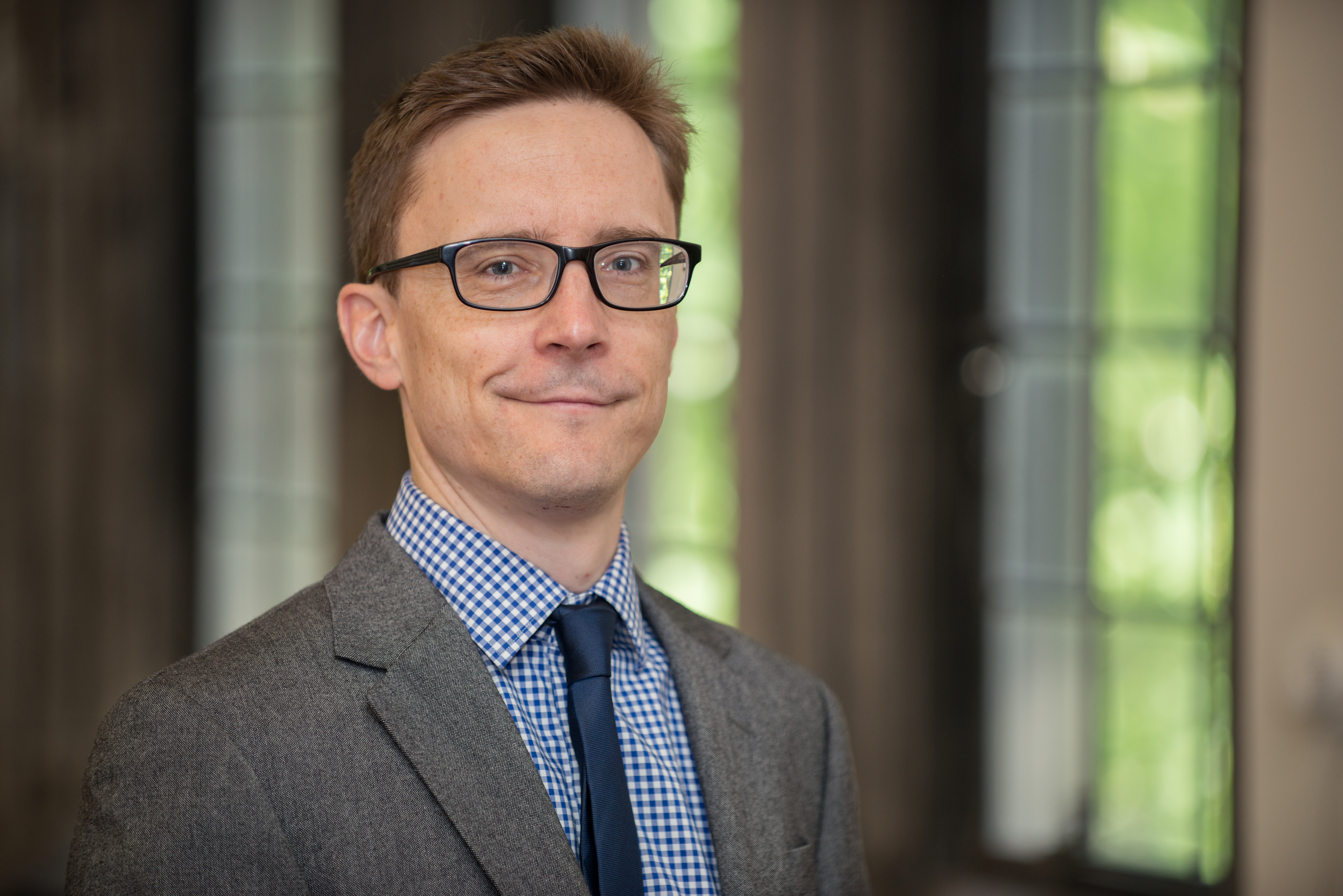
University of Cambridge, PhD '06
BIOGRAPHY
I am an historian of modern social and political thought. I focus in particular on American and British traditions of social thought. My earliest research examined how theories of knowledge drove important changes in the human sciences during the twentieth century. Much of this work found its way into my first book, Working Knowledge: Making the Human Sciences from Parsons to Kuhn (Cambridge, MA: Harvard University Press, 2012), which was awarded the Gladstone Prize by the Royal Historical Society, UK.
I am currently writing a book about the relations between economics and social thought from the late nineteenth century to the present. The aim of this project is to explain the ways in which modern economics has shaped – whether by attraction or repulsion – the development of social theory and political thought. The major topics addressed by the book include the diffusion of rational choice theory across the human sciences, and the reception of Enlightenment thought about politics and markets.
I also work on issues in the history of modern philosophy, American history and the history of the Cold War.
Before joining the University of Chicago, I held positions at the University of Cambridge (2011-2017) and Queen Mary, University of London (2007-2011).
Recent Research / Recent Publications
-
ed., with Gary Gerstle, States of Exception in American History (Chicago: University of Chicago Press, 2020)
-
ed., with James T. Kloppenberg et al, The Worlds of American Intellectual History (New York: Oxford University Press, 2016)
-
ed., with Duncan Bell, Uncertain Empire: American History and the Idea of the Cold War (New York: Oxford University Press, 2012)
-
Working Knowledge: Making the Human Sciences from Parsons to Kuhn (Cambridge, MA: Harvard University Press, 2012)
-
'The Many Faces of Analytic Philosophy' in The Cambridge History of Modern European Thought, ed. Warren Breckman and Peter Gordon (Cambridge: Cambridge University Press, 2019), 176-199
-
'The Intensification of Social Forms: Economy and Culture in the Thought of Clifford Geertz', Critical Historical Studies (Fall 2018): 237-266
-
'Pain, Analytical Philosophy, and American Intellectual History', in The Worlds of American Intellectual History, ed. Joel Isaac, James T. Kloppenberg, Michael O'Brien, and Jennifer Ratner-Rosenhagen (New York: Oxford University Press, 2016), 202-217
-
'Donald Davidson and the Analytic Revolution in American Philosophy, 1940-1970', Historical Journal 56 (2013), 757-79
-
'Missing Links: W. V. Quine, the Making of "Two Dogmas," and the Analytic Roots of Postanalytic Philosophy', History of European Ideas 37 (2011), 267-79
-
'Tool Shock: Technique and Epistemology in the Postwar Social Sciences', History of Political Economy 42 (Annual Supplement 2010), 133-64
-
'Theorist at Work: Talcott Parsons and the Carnegie Project on Theory, 1949-1951', Journal of the History of Ideas 71 (2010), 287-311
-
'Tangled Loops: Theory, History and the Human Sciences in Modern America', Modern Intellectual History 6 (2009), 397-424
-
'The Human Sciences in Cold War America', Historical Journal 50 (2007), 725-46
-
'W. V. Quine and the Origins of Analytic Philosophy in the United States', Modern Intellectual History 2 (2005), 205-34
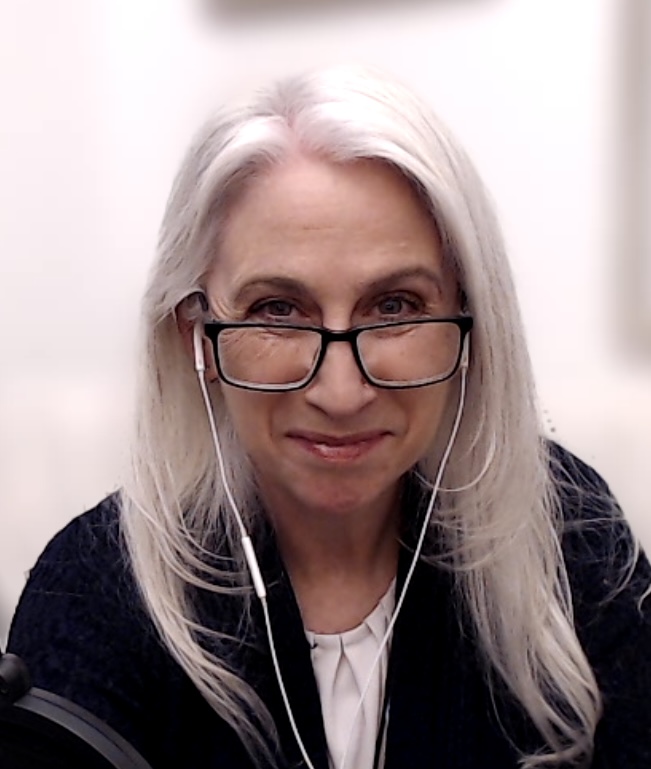
Columbia University, PhD '94
BIOGRAPHY
My research and teaching focus on the intellectual and cultural history of Europe in the Middle Ages, with particular emphasis on the history of Christianity in the Latin West. I also offer courses on the history of European civilization and the works of J. R. R. Tolkien. My ongoing research addresses the interplay between intellect and empathy in the practical development of a discipline of prayer. My immediate purpose is to find a way to describe prayer as a practical art, that is, as a practice that takes skill and uses particular tools. My ultimate goal is to develop an understanding of the meaning and importance of worship as itself a creative act.
In my research I have paid special attention to the medieval devotion to the Virgin Mary. Why? Because Mary is more than just the Virgin whom Christians believe gave birth to the Son of God. She is the key that unlocks the medieval era itself. As I argue in the proposal for the Companion to the Christian Tradition that I have been invited to edit for Brill, to understand the place of Mary in medieval Christian devotion, it is not enough to study her as an art historian or a musicologist or a literary scholar or an historian or a theologian. To understand Mary as medieval Christians imagined her, one has to understand everything. She is there in the art and the architecture and the music. She is there in the literature and the liturgy and the liberal arts. She is there in the most elevated expressions of human imagination and in the humblest prayers for help. She is there in the politics and in the ideals of marriage, in battle cries and in pleas for mercy for the oppressed. Medieval Christianity is inconceivable without her, and yet, since the Reformation, Christians have struggled to explain why she should have been there at all. “All the steam in the world,” Bostonian Henry Adams (d. 1918) once opined, “could not, like the Virgin, build Chartres.” He might better have said, “build Christendom.”
In my first book, From Judgment to Passion: Devotion to Christ and the Virgin Mary, 800–1200 (Columbia, 2002), my primary goal was to find a way to make a hitherto obscure tradition of scriptural commentary readable as a form of devotion. For my second book, Mary and the Art of Prayer: The Hours of the Virgin in Medieval Christian Life and Thought (Columbia, 2017), I wanted to take this exercise further and find a way to help modern academic and lay readers imagine seeing the world as a medieval Christian might, from within, while at the same time making clear what it took for medieval Christians to construct that worldview. My sources for this second project were similar to those that I used for my first book: liturgical chants and prayers, commentaries on scripture, stories told about the miracles of the Virgin, sculpted and painted images, all situated in the biographies of their authors and the larger transformations of the society and tradition in which they were produced. My question was likewise similar: what did it mean for medieval Christians to pray to the Virgin Mary as the Mother of God and to Jesus Christ as her Son? But my goal was somewhat more ambitious: not just to show modern readers how medieval Christians talked about Mary and her Son, but to give modern readers some sense of what it was like to see the world through this devotional and theological frame.
I apply a similar methodology in my teaching. Why do I teach medieval European history? Because story matters. More particularly: because the stories with which we fill our imaginations shape our souls as well as our actions in the world. All of the courses that I teach begin from this premise: that the study of history is valuable not just for the skills that it imparts, but also for its content because it is the content of its stories that gives shape to our understanding of ourselves and our world. The humanities as a whole have become heavily invested in the intersection of identity and practice over the past thirty or so years, but history has always been about identity—about our particular identities as individuals and about our shared identity as human beings. It is the practice of telling ourselves, as human beings, who we are.
In all my courses, I focus on helping students become aware of the way in which stories frame the way they think about the past, while at the same time encouraging them to read the sources I assign for the questions that they were originally intended to answer; that is, to look for the frames within which they were originally written. In my two-quarter section of Chicago’s core sequence “History of European Civilization,” this exercise takes the form of particular questions that I have the students ask about each text that we read: What does the author tell us (explicitly or implicitly) about why he or she was writing? Why was the author’s subject so important that he or she considered it worth writing about? What does the author’s interest in the subject tell us about the historical circumstances in which he or she was writing? In my undergraduate and graduate courses in medieval history and the history of Christianity, my methodology is the same, if less explicit: to think ourselves inside the frame(s) from within which our sources were written so as to attempt to understand why their authors made the arguments that they did in the way that they did and thereby become aware of the limitations of our own frames.
Such an exercise is necessarily always contingent and provisional, subject to revision as we read further into the sources, become aware of new elements in the story, and encounter assumptions for which we have no interpretive frame. My own teacher Caroline Walker Bynum coined the phrase “history in the comic mode” to describe this process. As Bruce Holsinger and I explained in the afterword to the Festschrift that we co-edited in her honor,
History in the comic mode challenges us as scholars (and storytellers) to recognize not only our endings, that is, our answers—carefully articulated on the basis of a proper weighting of the evidence in context, balanced against all the slippages and silences of the sources themselves—as constructions, but also our beginnings; the punch line is only funny, the answer is only satisfying, if we accept the premise of the joke...
As with all comedy, such an openness [to our own contingency] involves risks—we cannot be sure of our audience’s response any more than we can of our answers—and yet, we would insist, to refuse to take these risks out of otherwise commendable concerns for objectivity or methodological applicability, never mind contemporary political urgency, is less a mark of serious scholarly rigor than it is a tragic refusal to join in the fun.
I want my students to join in the fun, even as it challenges them to take risks, even as it threatens to overturn everything they have previously learned about the past—or about themselves.
Recent Research / Recent Publications
La Vierge Marie et le “Cantique des cantiques” au Moyen Âge. French translation by Jésus Marie Joseph. Honoré Champion, 2022.
Mary and the Art of Prayer: The Hours of the Virgin in Medieval Christian Life and Thought. New York: Columbia University Press, 2017.
Mary in the Scriptures: The Unexpurgated Tradition. The Theotokos Lectures in Theology 7. Milwaukee: Marquette University Press, 2014.
“Mary in the Scriptures as Container and Way: Henry Adams and the Virgin of Chartres.” In Performing the Sacred: Christian Representation and the Arts, ed. Carla M. Bino and Corinna Ricasoli, pp. 74-86. Leiden: Brill, 2023.
“Prayer.” In The Oxford Handbook of Christian Monasticism, ed. Bernice M. Kaczynski, pp. 317-32. Oxford: Oxford University Press, 2020.
“Mary and the Body of God: Servasanctus of Faenza and the Psalter of Creaton.” In Medieval Franciscan Approaches to the Virgin Mary, ed. Steven J. McMichael. Leiden: E.J. Brill, 2019.
"Mary in Medieval Prayer: The Hours of the Virgin." In The Oxford Handbook of Mary, ed. Chris Maunder, pp. 338-51. Oxford: Oxford University Press, 2019.
"Exegesis, Mimesis, and the Voice of Christ in Francis of Assisi's Office of the Passion." The Mediaeval Journal 4, no. 2 (2014): 39–62.
"What's in a Psalm? British Library, MS Arundel 60 and the Stuff of Prayer." In Rome and Religion in the Medieval World: Studies in Honor of Thomas F.X. Noble, edited by Valerie L. Garver and Owen M. Phelan, 235–52. Farnham, Surrey: Ashgate, 2014.
"Hildegard of Bingen’s Theology of Revelation." In From Knowledge to Beatitude: St. Victor, Twelfth-Century Scholars, and Beyond. Essays in Honor of Grover A. Zinn, Jr., edited by E. Ann Matter and Lesley Smith. Notre Dame: University of Notre Dame Press, 2013.
"Anselm and Praying with the Saints." In Experiments in Empathy: The Middle Ages, edited by Karl F. Morrison and Rudolph M. Bell. Turnhout: Brepols, 2013.
"Oratio." In The Cambridge Companion to Christian Mysticism, edited by Patricia Z. Beckman and Amy Hollywood. Cambridge: Cambridge University Press, 2012.
"My Psalter, My Self, or How to Get a Grip on the Office according to Jan Mombaer (d.c. 1501)." Spiritus: A Journal of Christian Spirituality 12, no. 1 (2012): 76–106.
“Three-in-One: Making God in Twelfth-Century Liturgy, Theology and Devotion.” In European Transformations, 950–1200, edited by Thomas F. X. Noble and John Van Engen, 468–97. Notre Dame: University of Notre Dame Press, 2012.
"Mary." In Christianity in Western Europe c. 1000–c.1500, edited by Miri Rubin and Walter Simons, 283–96. Cambridge: Cambridge University Press, 2009.
"Praying by Numbers." Studies in Medieval and Renaissance History, 3rd series 4 (2007): 195–250.
History in the Comic Mode: Medieval Communities and the Matter of Person, coedited with Bruce Holsinger. New York: Columbia University Press, 2007.
"Praying with Anselm at Admont: A Meditation on Practice." Speculum 81, no. 3 (July 2006): 700–733.
"'Taste and See That the Lord is Sweet' (Ps. 33:9): The Flavor of God in the Monastic West." The Journal of Religion 86, no. 2 (April 2006): 169–204.
"The Virgin in the Garden, or Why Flowers Make Better Prayers." Spiritus: A Journal of Christian Spirituality 4 (Spring 2004): 1–23.
From Judgment to Passion: Devotion to Christ and the Virgin Mary, 800–1200. New York: Columbia University Press, 2002.
-
Journal of the History of Ideas' Morris D. Forkosch Prize for the best book in intellectual history published in 2002
-
2006 John Nicholas Brown Prize by the Medieval Academy of America
"'Quae est ista quae ascendit sicut aurora consurgens?': The Song of Songs as the Historia for the Office of the Assumption." Mediaeval Studies 60 (1998): 55–122.
"Mimetic Devotion, Marian Exegesis, and the Historical Sense of the Song of Songs." Viator 27 (1996): 86–116.
-
Dr. Fulton Brown's Tolkien Class Celebrated as a "Favorite UChicago Course"
-
Interviewed about Draco Alchemicus on Bounding Into Comics
-
Discusses Holy Fools in film, Fox Valley Film Critics, February 2020 [video, 29 mins]
-
"Stephen McInerney speaks with Rachel Fulton Brown," The Ramsay Centre Podcast, August 19, 2019
-
"Reclaiming the Middle Ages from Contemporary Politics," The Australian, August 10, 2019
-
Delivers talk, "Is Academia Good for the Soul?," Society For Academic Freedom and Scholarship, August 2019 [video, 76 mins]
-
Delivers the first Chris and John Furedy Lecture, Society for Academic Freedom and Society, Canada, May 3, 2019 [video, 79 mins]
-
"Episode 1407: Does Study of the Middle Ages Have a 'White Supremacy' Problem,” The Tom Woods Show, May 16, 2019
-
"In the Academic Sandbox: A skirmish in Medieval Studies," First Things, June 2019
-
"Medieval Scholars Joust With White Nationalists. And One Another," New York Times, May 5, 2019
-
"It's Her Cathedral," Catholic Herald, Apr. 18, 2019
-
"Fire in the Cathedral," First Things, Apr. 17, 2019
-
"How the Christchurch Shooter Seduced the Media With His Evil," American Greatness, Mar. 18, 2019
-
"One Gutsy Medievalist," National Review, Sept. 14, 2018
-
Delivers talk, "Training the Soul in Virtue: Lessons from the West," National Association of Scholars conference [video, 38 mins]
-
Publishes Mary and the Art of Prayer: The Hours of the Virgin in Medieval Christian Life and Thought (Columbia, 2017)
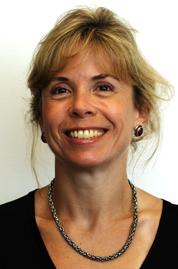
Princeton University, PhD '95
BIOGRAPHY
I am a professor in History, the College, and the Law School. My most recent book, White Fright: The Sexual Panic at the Heart of America's Racist History (Basic Book, 2020), concerns race, sex, and the civil rights movement from emancipation to the present. My next most recent book is Building the American Republic, Volume 2: A Narrative History From 1877 (Chicago, 2018). Both volumes are free in e-book form.
My work has revolved around the relationship between race, sex, and politics in the post-Emancipation South. My first book, Before Jim Crow: The Politics of Race in Postemancipation Virginia (North Carolina, 2000), analyzed the conditions that facilitated and, ultimately, undid interracial democracy in the post–Civil War South. An edited collection with Glenda E. Gilmore and Bryant Simon, Jumpin' Jim Crow: Southern Politics from Civil War to Civil Rights (Princeton, 2000), continued the theme of African American resistance to white domination from Reconstruction through the 1950s. A third book, The Age of Jim Crow: A Norton Documentary History (Norton, 2008), examines the creation and dissolution of legal segregation in America through primary sources.
My awards include fellowships from the American Council of Learned Societies, the American Academy in Berlin, the Alphonse Fletcher Foundation, and the John Simon Guggenheim Memorial Foundation.
Recent Research / Recent Publications
-
White Fright: The Sexual Panic at the Heart of America's Racist History. New York: Basic Book, 2020.
-
Building the American Republic, Volume 2: A Narrative History from 1877. Chicago: University of Chicago, 2018.
-
"The Theology of Unionism and Anti-Unionism." Labor: Studies in Working-Class History of the Americas 14, no. 1 (Mar. 2017): 83–85.
-
Senior editor for legal history, Oxford Research Encyclopedias: American History, edited by Jon Butler. Oxford: Oxford University Press, 2013–present.
-
"Is Marriage a Civil Right? The Politics of Intimacy in the Jim Crow Era." In The Folly of Jim Crow: Rethinking the Segregated South, edited by Stephanie Cole and Natalie J. Ring, 176–208. College Station: Texas A&M Press, 2012.
-
"The Civil Rights Movement in the South." In Speaking Out With Many Voices: Documenting American Activism in the 1960s and 1970s, edited by Heather Ann Thompson. Upper Saddle River, NJ: Prentiss Hall, 2008.
-
"Fighting Hitler and Jim Crow: African Americans and World War II." The Berlin Journal (Fall 2005): 27–30.
-
"The Theology of Massive Resistance." In Massive Resistance, dited by Clive Webb, 151–80. New York: Oxford University Press, 2005.
-
"Sex, Segregation, and the Sacred After Brown." Journal of American History 91, no. 1 (June 2004): 119–44.
-
"The Congress and White Supremacy, 1860s-1920s." In The American Congress: The Building of Democracy, edited by Julian E. Zelizer, 250–67. Boston: Houghton-Mifflin, 2004.
-
"The Sexual Politics of Race in WWII America." In Mobilizing the Movement, edited by Kevin Kruse and Stephen Tuck. New York: Oxford University Press, 2011.Before Jim Crow: The Politics of Race in Post-Emancipation Virginia. Chapel Hill: University of North Carolina Press, 2000.
-
"The Limits of Liberalism in the New South: The Politics of Race, Sex, and Patronage in Virginia" and "Introduction." In Jumpin' Jim Crow: Southern Politics from Civil War to Civil Rights, edited by Jane Dailey, Glenda Gilmore, and Bryant Simon, 3-6, 88–114. Princeton, NJ: Princeton University Press, 2000.
-
"Deference and Violence in the Postbellum Urban South: Manners and Massacres in Danville, Virginia." Journal of Southern History 63 (August 1997): 53–90.
-
Laura Kipnis's Unwanted Advances: Sexual Paranoia Comes to Campus, Christian Century (Oct. 9, 2017).
-
Timothy B. Tyson's Blood Done Sign My Name. Chicago Tribune (May 30, 2004).
-
Steven Hahn's A Nation Under Our Feet. Chicago Tribune (February 22, 2004).
-
"The Last Time We Fought a Preemptive War in the Middle East." Huffington Post (Dec. 1, 2017).
-
"Gerrymandering Is a Threat to Our Republic." Huffington Post (Oct. 3, 2017).
-
"Remembering our KKK Past." Huffington Post (Sept. 12, 2017).
-
"The Confederate General Who Was Erased from History." Huffington Post (Aug. 21, 2017).
-
Discusses the American South's geographic boundaries with Business Insider
-
Published Building the American Republic, Volume 2: A Narrative History from 1877
-
Discusses Presidential Primaries with Robin Young on Public Radio [audio, 9 mins.]
-
Delivers Constitution Day Lecture on "Sex, Race, and the 14th Amendment" at Carthage College, Wisconsin [video, 86 mins.]
-
"Obama's Omission." Chicago Tribune (July 30, 2008).

